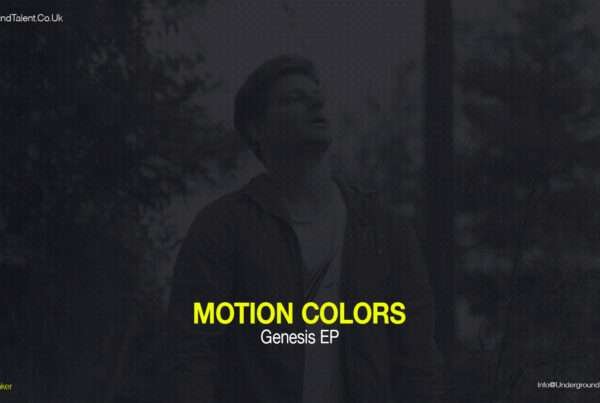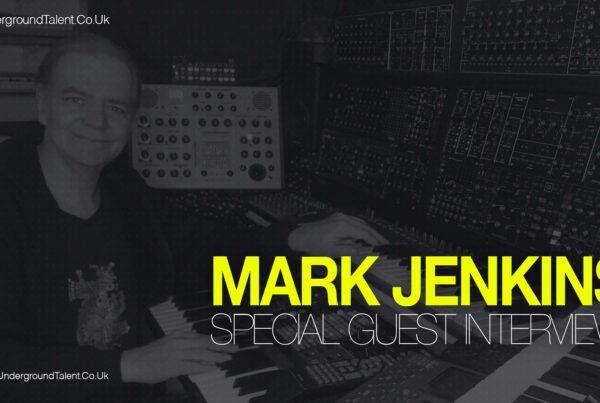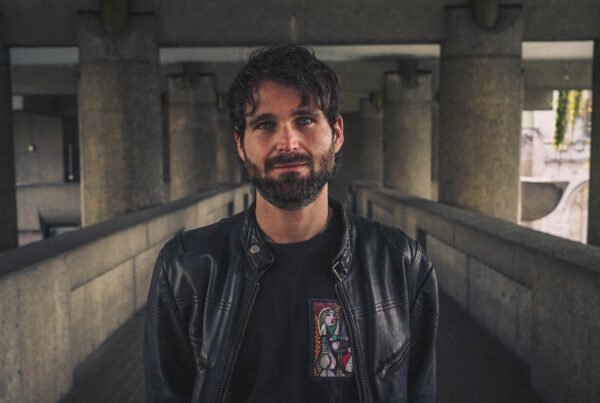A Special Guest Interview With Fossil Archive aka Roberto / R.M.K.
One of the greatest things that you develop as a techno artist is learning from the advice given by other, more experienced musicians. Especially if they are well respected, very dedicated and have a proven track record of many performances that can be found with a few clicks, by looking up their name.
Ravers, DJs, Producers & Lovers of Techno, please allow me to introduce and warmly welcome Fossil Archive aka Roberto / R.M.K., who is joining us today for the Underground Talent’s Special Guest Interview.

Photographer: Hanna Hrabarska. | Graphics by Loop Media.
Today is a special day! Special guest, special questions! But what makes a question so special? Extra time and effort that was invested to improve the quality of our content at Underground Talent and provide real value to real people.
Meeting artists that walked the paths you are aiming for is a nice feeling, but what’s most important, is the opportunity to learn from an authority!
Tresor, Berghain, Fabric, CLR Podcast, Slam Radio, Electric Deluxe are amongst many other famous venues, major blogs and magazines that Fossil Archive aka Roberto appeared in, which cannot be named for legal reasons. Anyways, if I was to list all of those here, it would transform our interview into a historical report, because the list of Fossil Archive aka Roberto’s accomplishments is very impressive! And endless!
Achievements that played their part in the History of Techno & the Underground Culture, not only in London but on a global scale.
Inspired by what Jim Rohn₁ once said:
“Interested people want to know if it works. Fascinated people want to learn how it works.”
And today, I am thrilled to have you as a guest. You are a fascination for me and it’s an opportunity to get valuable answers to my questions. Yet, I am determined to ask you the right questions!
Read Also: Top 10 Techno Music Artists of All Time
Trying to create something that will stay indelible in time, is what can bring people, strong and weak, into the struggle phase. A period in which very few survive, until the breakthrough, followed by the growth phase while developing artistically and professionally. We thought it would be a great idea to inspire the new generation with this interview, the angels of the future of techno.
They are the newcomers that need to hear advice and stories from successful producers and DJs like you, Roberto!
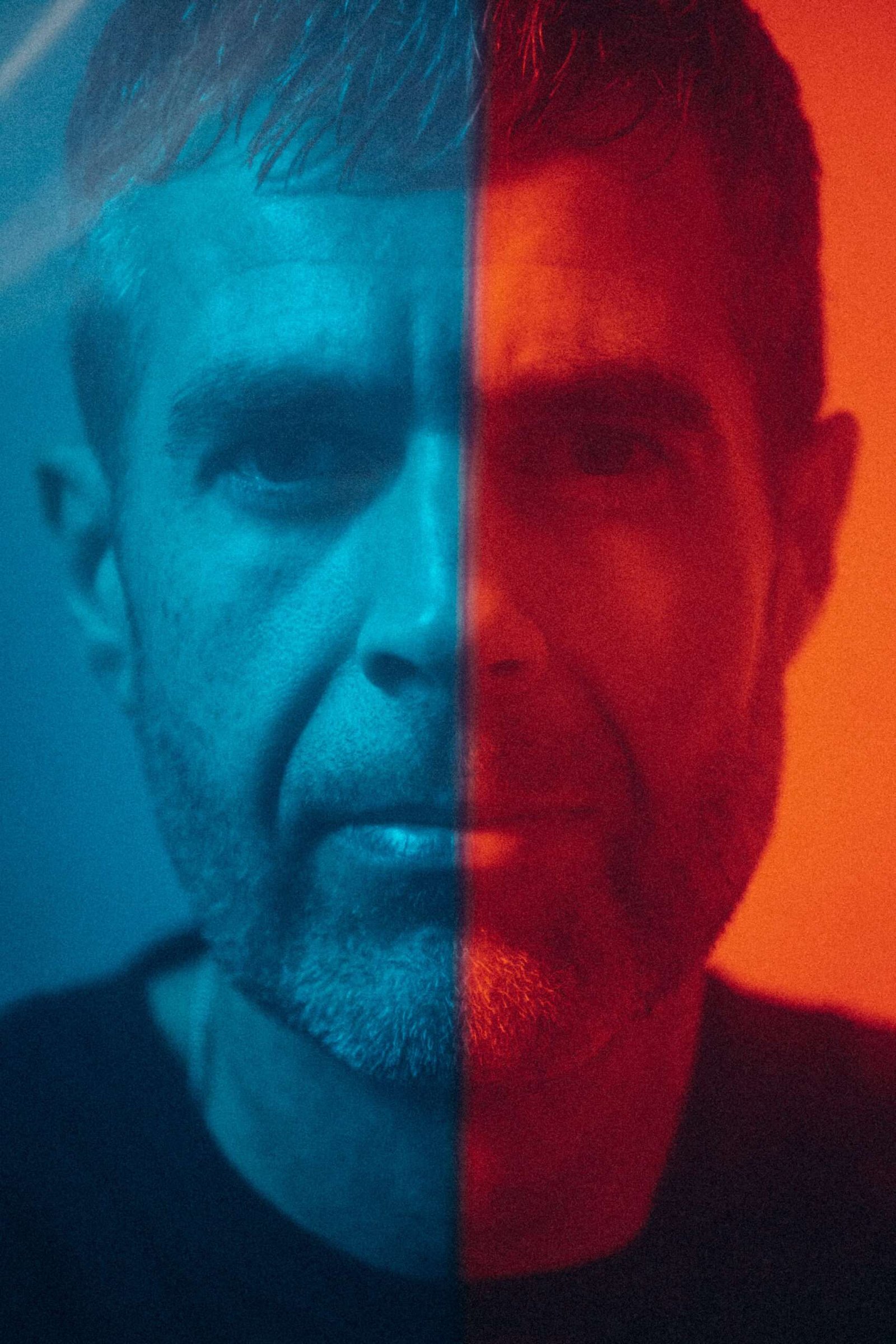 Photographer: Hanna Hrabarska.
Photographer: Hanna Hrabarska.
But first, I would like to ask a bit about you and your life. Who is the guy behind Roberto? What’s Rob like on an ordinary day? What’s an interesting fact that no one knows about you?
First of all, I’d like to thank you for the epic intro. I hope my answers live up to expectations!
An average day is very hectic for me. I am a single dad of two young boys. I typically get up at 5 am and immediately start working. During the week I work full-time as an Acoustic Consultant. The kids then get up and I walk them to school. I then come back home and work until pickup time. After school, we do activities together and I work on music. I also love to exercise every day. My partner is an amazing personal trainer and she keeps me in shape! Last year I ran in the Royal Parks Half Marathon in London. It was an incredible experience! I am going to do it again in a couple of weeks.
Don’t Miss: Exclusive Interview With Lady Maru| Industrial & Hard Techno
When did this all start? What was the very beginning like? When did you know that this is where you want to go? Your thoughts, your doubts!? I would love to hear that story!
It all started for me when I was around 13 on a school trip to Devon. My friend had a Walkman and was playing old rave tapes. Remember those?! He had a tape of a famous jungle DJ called Mickey Finn and when I heard it, I was instantly hooked. A couple of years ago I managed to find the recording from the tape here.
I was absolutely thrilled to find it and it still sounds amazing! That 1995 era of Jungle was absolutely incredible. After that, I found out that a record shop in Leicester (where I grew up) called 5HQ sold these rave tape packs. From then on, I started collecting tapes, which lead to buying a set of belt drive turntables and many records.
That was 22 years ago and I never looked back. Soon after I wanted to try and make my own music and went to college to study music technology. It took me a very long time to master the art of production (at least 10 years), but I was very determined, despite not having any musical training. Eventually, things started to click and my music started to improve. You never stop learning though and I am hungrier than ever to push myself as an artist.
Read Also: Ayako Mori @ Special Guest Interview
What went well, what didn’t go well, or had unintended consequences in your career as a techno artist?
I’ve had some amazing experiences in my time in the techno scene. Being able to DJ regularly at clubs such as fabric, Berghain and Tresor has been such a privilege and amazing learning experiences. However, in recent years I wanted to push myself further and offer something different as an artist. That’s why I created my live show.
In 2018 I played in Room 2 at fabric and after my set, me and some friends went to explore Room 1. When we walked in, we saw Mr. G playing live on the stage. He was using an old Akai MPC and an analogue mixer to play his own music. For years I had been toying with the idea of doing a live show, but really didn’t want to do it using a computer.
Seeing Colin perform in that way triggered something for me and I went out and bought some gear. It took some time to perfect, but once I got it, it was hugely liberating.
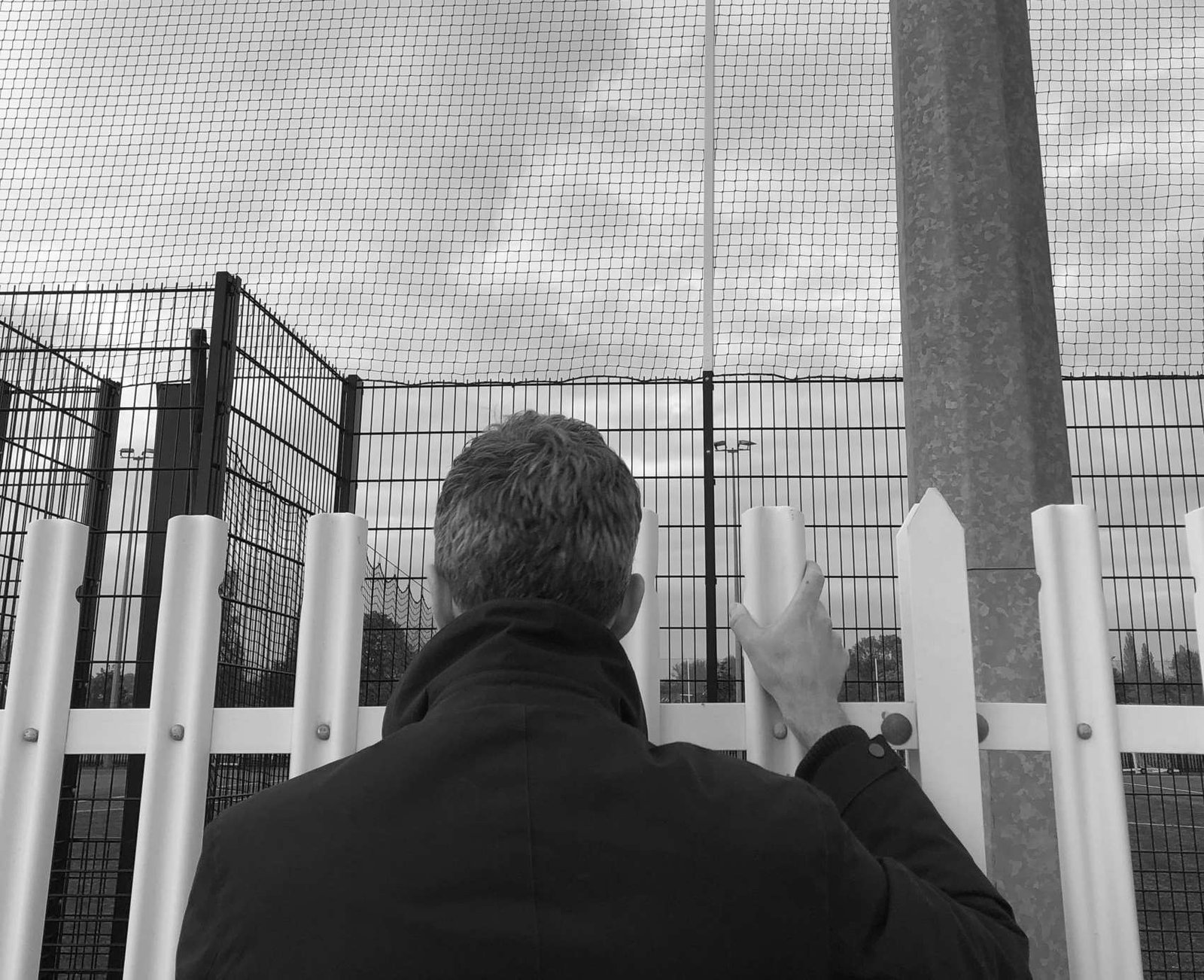 Fossil Archive aka Roberto / R.M.K | Photographer: Hanna Hrabarska.
Fossil Archive aka Roberto / R.M.K | Photographer: Hanna Hrabarska.
Don’t Miss: NFTs & the Music Industry: A Letter from the Future
If you had to do it all over again, would you do anything differently, and if yes, what & why?
I don’t think so. It’s all been a big learning experience in life and I don’t regret anything. You can’t change the past and I always try to be as positive as I can and focus on the future.
Often, people say “There are certain life lessons that you can only learn in the struggle.” What are some of the most important lessons you’ve learned throughout all those years? It must have been challenging while living in a metropolis like London.
Never give up! I don’t think I have a special gift when it comes to anything, but I am a very determined and hardworking person. If you dedicate yourself to something, eventually you start to master it and good things happen.
Don’t Miss: Ortus | Special Guest Interview
Negotiation, strategic planning, and politics in the music business, all these are part of the skills someone is building toward a successful career path. But not always things go well and this can cause emotionally unstable moments, actively or passively. When was the last time you were angry or upset about something that didn’t go well? How do you handle emotions, mistakes, etc.? Any advice?
The one occasion that immediately springs to mind was when I was performing my live show at in London last summer. It was the first weekend when Covid restrictions had been lifted and people were allowed to go clubbing again.
I had sound checked earlier that day and everything was sounding good.
However, shortly after starting my set, a lot of the sub-bass had disappeared, and I was really struggling to translate the music. At first, I got really frustrated, but I then thought to myself “everyone has been in lockdown for a hugely long time and hasn’t been able to go out and dance.” This really put things into perspective for me and I was able to dash the negative thoughts aside and just enjoy seeing people dance together again. It was really quite a moment!
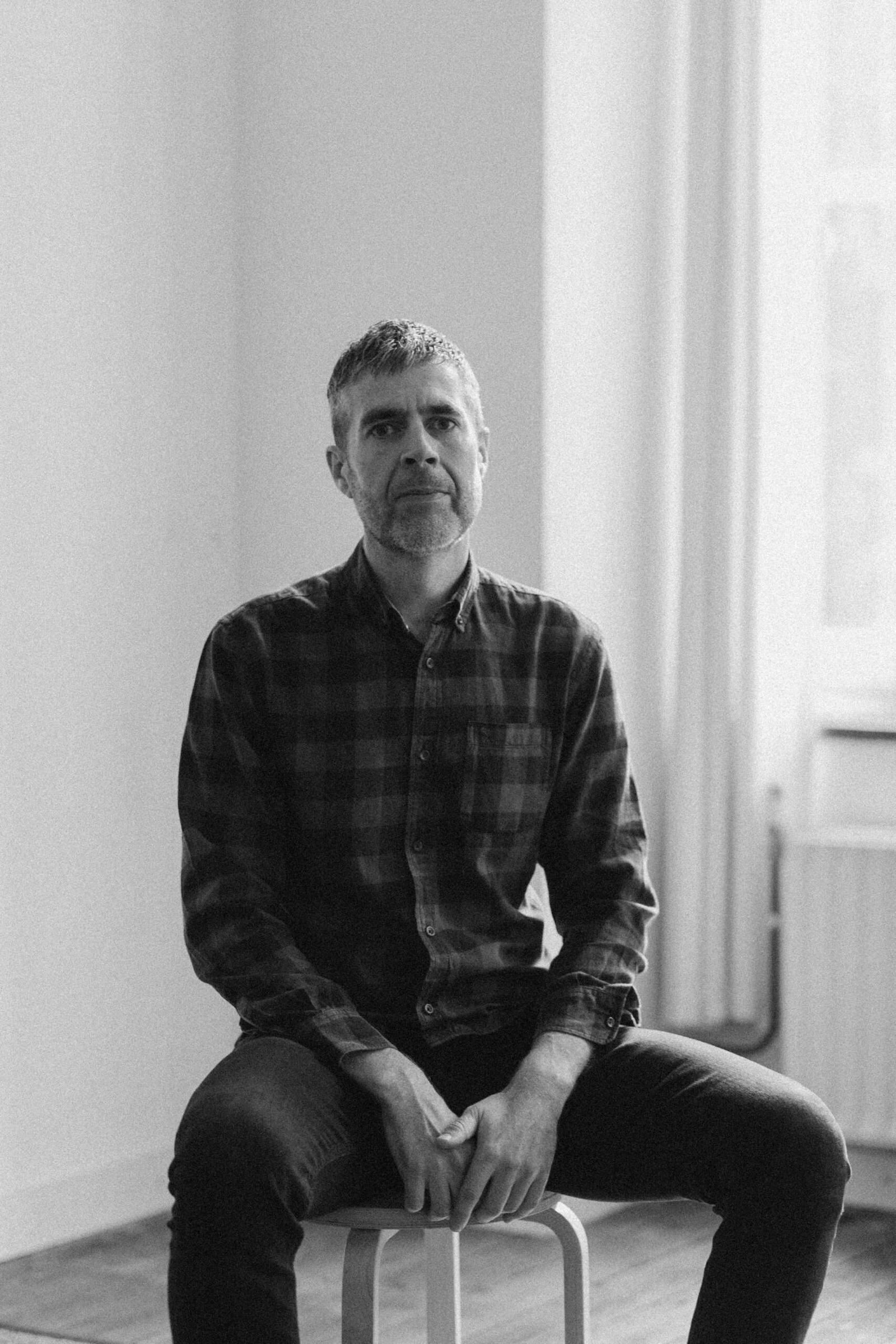 Fossil Archive aka Roberto / R.M.K | Photographer: Hanna Hrabarska.
Fossil Archive aka Roberto / R.M.K | Photographer: Hanna Hrabarska.
Could you tell us about your label Fossil Archive Records? What inspired you to become a label owner? Seems hard work, is there a team behind the scenes?
I always wanted to have my own label, and ever since I was a teenager going to record shops to buy records. When I went to university in Salford, I would religiously go to Easternbloc Records in Manchester every Saturday.
Around that period Marcus Intalex started his label Soul:R and I always remember thinking that I didn’t even need to listen to those records before buying. Simply seeing it on the shelf was enough to buy it because you just knew it would be amazing. That was always the goal with my label.
The focal point always has to be the quality. If the music is not cutting it, I don’t want to release it. There are a lot of elements to take into consideration with running a label, but I’m really happy with how it has gone since starting it in 2015. Since it started, I have done pretty much everything myself. I am very much on board with the DIY ethos.
How do you manage the balance between life, Roberto, R.M.K and Fossil Archive Records?
By the string of my teeth! Sometimes I look back and can’t believe how I have done it. Everything changed after becoming a dad though and I became much more focused.
You learn to manage your time so much better.
Around 6 years ago I turned vegan which really helped with my energy levels. I also lost a lot of weight a couple of years ago and got in shape which has helped me further. Doing all these things really helped me be more productive with everything I do.

Fossil Archive aka Roberto / R.M.K | Photographer: Hanna Hrabarska.
What’s next for you and the label?
During the lockdown, I stopped the label and took a break. During that period I wrote a lot of new music and started collaborating with friends such as Jamie Anderson, Robert Owens and Stevie Cox. I also started a new alias called R.M.K for tracks that are a bit faster and tougher sounding.
The R.M.K is heavily influenced by classic records from the likes of the Advent, Ben Sims and Sterac. In February I restarted the label and now have a steady release schedule of new music planned. I want the label to have a more consistent release schedule than it previously did and I am really loving getting the music out there again.
I’ve released some of my R.M.K tracks on Nastia’s NECHTO label, as well as Soma and have more planned for this year.
– Get It Here –
Which of your releases are you most proud of, and which from Fossil Archive Records?
I’m proud of all of the releases, but one which really sticks out is the Warehouse Ep which I wrote with Jamie Anderson and Robert Owens. Being able to collaborate with Robert was such a privilege. He’s an amazing artist and someone I always dreamt about working with.
How are you doing with bookings at the moment? Is everything back to normal? How did the music industry respond to the last two years in your opinion?
It’s always hard to say, but my perception is things are still not back to normal yet. A lot of promoters are still working through the backlog of previous cancellations due to Covid. There also appears to be a lack of younger people going to parties at the moment. This is possibly another consequence of Covid as a new generation of clubbers have not had the opportunity to experience music in a live environment.
I have seen you playing live at Werkhaus in London, at Minimal Force’s party. I was very impressed with your organisation and focus! What are your favourite machines? Do you always play live with the same setup? What’s the best advice for planning your tracks and routing flow, what’s your secret?!
Since I started the live show, I kept the setup the same. As I mentioned previously, the MPC is the heart of it all, but I do plan to add some more machines to the setup. I took me quite a while to get the show to sound slick and I am still learning. Ultimately, it’s just about practicing as much as you can.
 Fossil Archive aka Roberto / R.M.K | Photographer: Hanna Hrabarska.
Fossil Archive aka Roberto / R.M.K | Photographer: Hanna Hrabarska.
Do you ever jam in live gigs or everything goes to plan?
I plan a running order for the tracks, but if I want to, I can jump between different tracks. Because it is live, I can bring in and drop out whichever sounds I want at any given time. Having that complete control is hugely satisfying and something I wasn’t able to have through DJing.
For example, if I want to bring in a Ride cymbal to lift the energy, I can do that whenever I like. Whereas with DJing, I have to wait for that to come in on the track, or it might not even be in the track. Essentially with the live show, everything is a jam. It’s so much fun!
How is music production going at the moment? Is there enough time for creating new ideas and finishing tracks? Do you produce music analogue, or hybrid? Any favourite digital tools in your VST arsenal?
I’m in a really good place at the moment. Over the last year or so I have developed so much as an artist. I have pushed myself to get out of my comfort zone and that has really benefitted me.
With regards to my setup, I am running an old PC with Cubase. I use the computer more as a tape machine these days. I have a number of hardware synths and a drum machine that I run through an old analogue mixer. I use the mixer to overdrive the sounds to get a lovely warmth to them. They then get recorded into the computer.
Often, I will record myself jamming on the machines so that they have more of a live feel. Once all of the sounds are recorded, I then get to work on the arrangement and mixing in Cubase. When I started producing, I vowed to finish every track I start. That taught me a huge amount and I have built up a sizeable library of tracks over the years. My favourite digital VST tools are definitely the Sonimus Satson plugins. I use them all the time to add more character and warmth to sounds. They’re brilliant.
Read Also: How To Learn Electronic Music Production | 12 Tips By Lex Bunker
If you could travel back in time now; to the very beginning when everything was starting for you and you had the opportunity to interview yourself, what would be your special question?
Where do you anticipate seeing yourself musically in 20 years’ time?
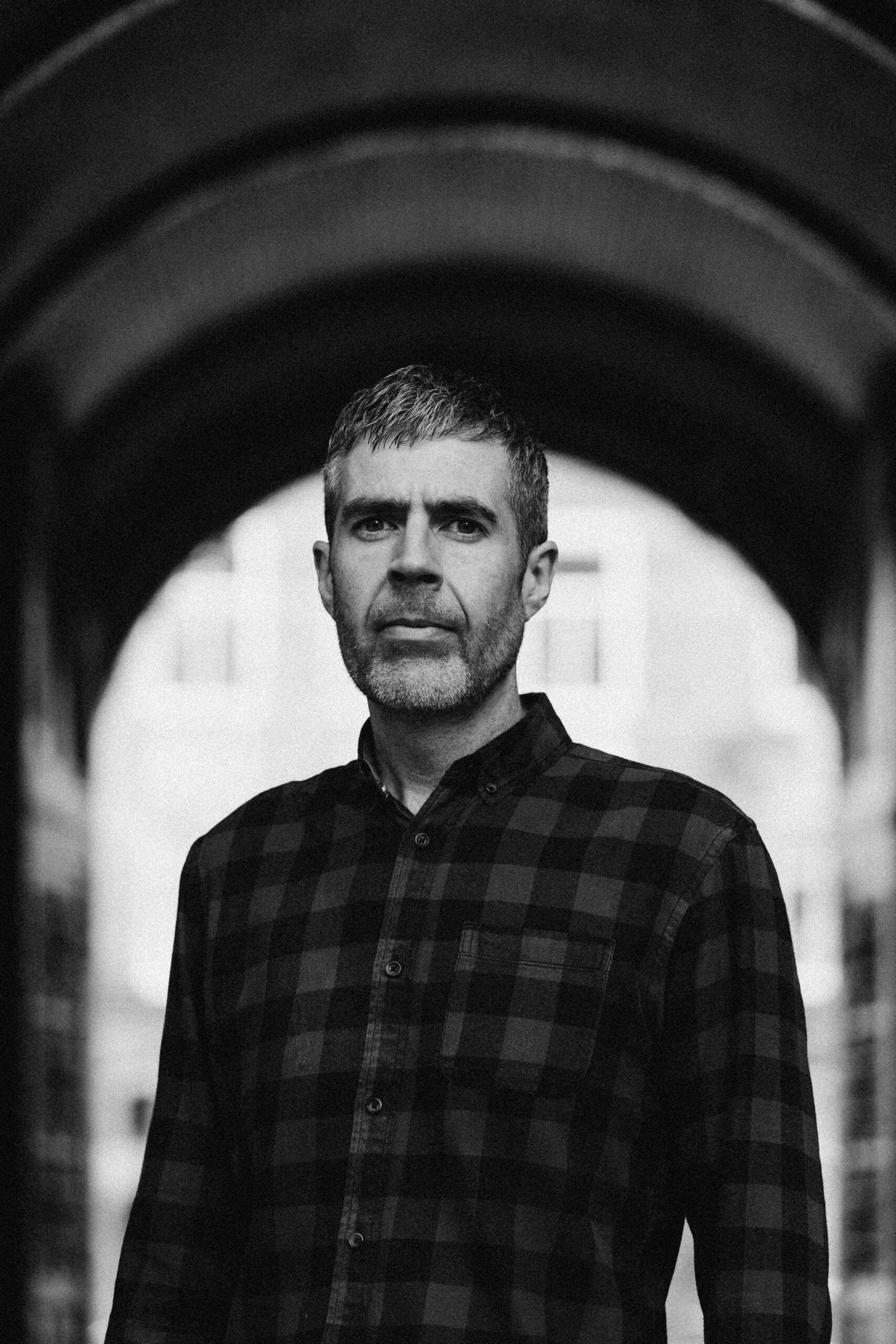 Fossil Archive aka Roberto / R.M.K | Photographer: Hanna Hrabarska.
Fossil Archive aka Roberto / R.M.K | Photographer: Hanna Hrabarska.
We are researching historical reports and archives in Techno Music for a series of content that we are planning to start very soon, called “A Letter from the Past”. From the Fluxus Movement up to the late 90s – the purpose is to educate the new generation, that might not be aware of the roots and inspirations, of techno. Which artists or bands would you recommend us to look at?
I think an obvious place to start would be with the birth of Techno music in Detroit.
But something that really intrigues me and is less talked about is the early roots of Techno in The Netherlands and Belgium.
Particularly artists, like Steve Rachmad, who were instrumental in developing the Techno sound in that region.
Don’t Miss: The Greatest Albums of All Time
Learning from the past is important to be able to build a great future; your actions at the present time are showing that you have plans for the future! What can we expect from you?
I want to continue to develop as an artist and put out quality music on the label. I also really want to collaborate more with other artists and even develop b2b live shows together.
Performing live with other artists really excites me.

Fossil Archive aka Roberto / R.M.K
We are aiming to become a platform that will support and connect a healthy techno scene/community by sharing knowledge, experiences, opportunities, and resources equally accessible to everyone. What advice for the future would you give to Underground Talent?
Take your time and do what you feel is authentic to you. Don’t follow trends or copy others.
 Fossil Archive aka Roberto / R.M.K | Photographer: Hanna Hrabarska.
Fossil Archive aka Roberto / R.M.K | Photographer: Hanna Hrabarska.
Fossil Archive aka Roberto / R.M.K | Special Guest Interview | Final Thought
We, here at Underground Talent, would like to thank you for accepting our invitation. We are honored to have had the opportunity to share your experiences and advice with our community, it means a lot! We really appreciate the time you took to reflect on the heavy career timeline created throughout the years as an artist on the Underground Talent platform!
If you feel inspired by the Fossil Archive aka Roberto / R.M.K. interview, share your thoughts with us on Instagram!
Find More About Fossil Archive aka Roberto / R.M.K. Here:
About the Photographer
Hanna Hrabarska is a Ukrainian portrait and music photographer based in Amsterdam. You can find out more about her work on Instagram and her website.
Indicators:
- Emanuel James Rohn, professionally known as Jim Rohn, was an American entrepreneur, author and motivational speaker. Wikipedia
- Fluxus was an international, interdisciplinary community of artists, composers, designers and poets during the 1960s and 1970s who engaged in experimental art performances which emphasised the artistic process over the finished product. Wikipedia
And Always Remember…
Have Fun & Be Creative!

